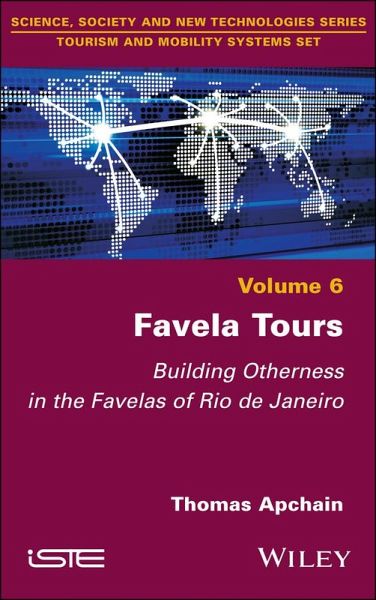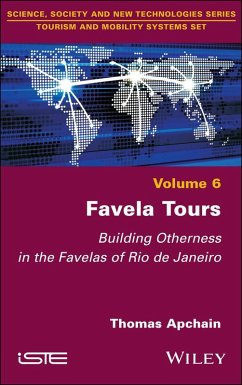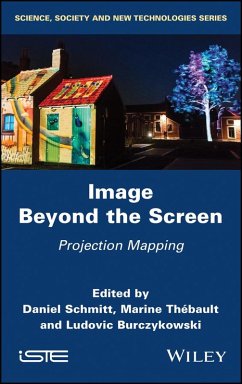
Favela Tours (eBook, ePUB)
Building Otherness in the Favelas of Rio de Janeiro
Versandkostenfrei!
Sofort per Download lieferbar
114,99 €
inkl. MwSt.
Weitere Ausgaben:

PAYBACK Punkte
0 °P sammeln!
For a long time, favelas were a source of fear for tourists visiting Rio de Janeiro. Now that they are more appealing, some have become popular tourist destinations even though they are still regarded as an "off the beaten track" activity. Favela Tours analyzes the factors behind the emergence of tourism in the favelas, places of otherness and authenticity for visitors who come mainly from Western Europe and North America. Based on ethnography of those involved in these practices (guides, residents and tourists), this book describes how the local and global forces are converging to make favela...
For a long time, favelas were a source of fear for tourists visiting Rio de Janeiro. Now that they are more appealing, some have become popular tourist destinations even though they are still regarded as an "off the beaten track" activity. Favela Tours analyzes the factors behind the emergence of tourism in the favelas, places of otherness and authenticity for visitors who come mainly from Western Europe and North America. Based on ethnography of those involved in these practices (guides, residents and tourists), this book describes how the local and global forces are converging to make favelas part of the western tourism system: a mechanism for fabricating and assimilating otherness.
Dieser Download kann aus rechtlichen Gründen nur mit Rechnungsadresse in A, B, BG, CY, CZ, D, DK, EW, E, FIN, F, GR, HR, H, IRL, I, LT, L, LR, M, NL, PL, P, R, S, SLO, SK ausgeliefert werden.













